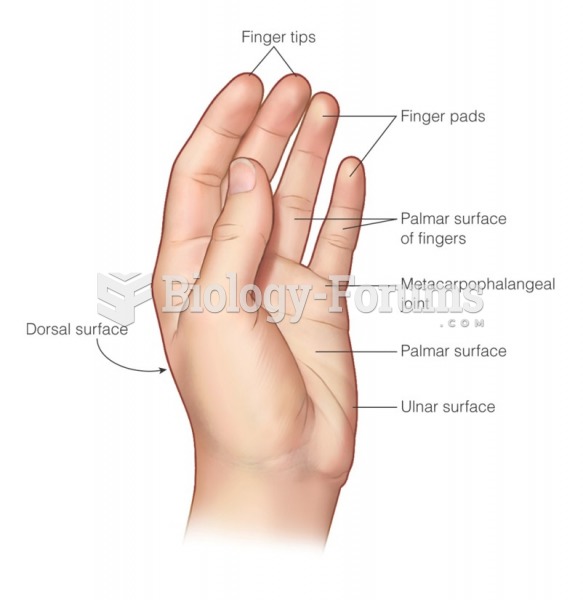|
|
|
Vaccines prevent between 2.5 and 4 million deaths every year.
The most dangerous mercury compound, dimethyl mercury, is so toxic that even a few microliters spilled on the skin can cause death. Mercury has been shown to accumulate in higher amounts in the following types of fish than other types: swordfish, shark, mackerel, tilefish, crab, and tuna.
Ether was used widely for surgeries but became less popular because of its flammability and its tendency to cause vomiting. In England, it was quickly replaced by chloroform, but this agent caused many deaths and lost popularity.
Pubic lice (crabs) are usually spread through sexual contact. You cannot catch them by using a public toilet.
Though newer “smart” infusion pumps are increasingly becoming more sophisticated, they cannot prevent all programming and administration errors. Health care professionals that use smart infusion pumps must still practice the rights of medication administration and have other professionals double-check all high-risk infusions.
 For ice massage, ice is frozen in a cylindrical container or a paper cup (A). The top half of the cu
For ice massage, ice is frozen in a cylindrical container or a paper cup (A). The top half of the cu
 In this photo opportunity, Phillies manager Ben Chapman refused to shake Jackie Robinson’s hand. ...
In this photo opportunity, Phillies manager Ben Chapman refused to shake Jackie Robinson’s hand. ...





